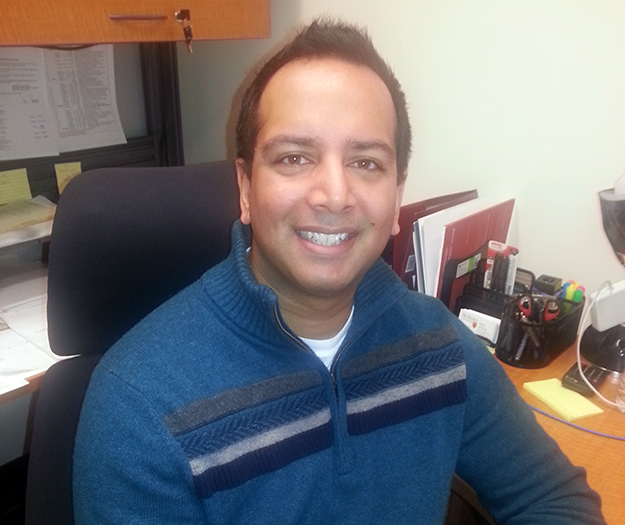Mac neuroscientist looks for genetic roots of brain disease

'Karun was an ideal recruit and fit for the institute, and sits in the pocket of where we strategically plan to go towards discovering new drugs for brain disorders that include Parkinson's and Alzheimer's,' said Mick Bhatia, director of McMaster's Stem Cell and Cancer Research Institute.
The promise of discovering treatments for autism, schizophrenia, Alzheimer’s and other neurological diseases is fueling Karun Singh, a researcher at McMaster’s Stem Cell and Cancer Research Institute.
A renowned neuroscientist and the institute’s newest recruit, Singh’s pioneering research is focused on uncovering genetic defects inside the brains of people with these and other neurological disorders.
Autism, along with many other psychiatric disorders, has a genetic component. Singh is hoping to search for new clues by studying specific genetic mutations associated with these diseases.
The underlying statistics are sobering. Autism alone impacts one in 88 Canadian children. Schizophrenia, a serious brain and mind disorder, affects roughly 300,000 Canadians, while more than 500,000 Canadians suffer from memory loss due to Alzheimer’s disease.
“We will eventually try to model these diseases in a derived neural cell. This will allow us to probe what is wrong, and how that mutation gives rise to a defective brain cell,” explained Singh, an assistant professor of Biochemistry and Biomedical Sciences.
Once he has uncovered an abnormality, Singh plans to work to discover drugs that correct the defect.
According to Mick Bhatia, director of the Stem Cell and Cancer Research Institute, Singh’s research ties in nicely with investigations already underway at McMaster.
“Karun was an ideal recruit and fit for the institute, and sits in the pocket of where we strategically plan to go towards discovering new drugs for brain disorders that include Parkinson’s and Alzheimer’s,” said Bhatia.
Singh grew up in Hamilton and received his undergraduate degree from McMaster’s Faculty of Science. Most recently, he worked as a postdoctoral associate at the Massachusetts Institute of Technology, where he investigated how psychiatric disease risk genes affect brain development and neural circuit formation.
Singh feels truly at home returning to Hamilton and McMaster. From a neuroscience perspective, the Stem Cell and Cancer Research Institute offers young researchers a real chance to shine.
“In another place, you would have had to start from scratch. This University is designed for someone to come and hit the ground running,” he explained. “The environment is very welcoming, and it’s also a youthful environment. I’m surrounded by peers who are all starting their careers. I can forge collaborations with people that I never could otherwise.”

